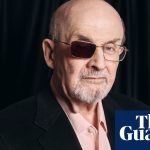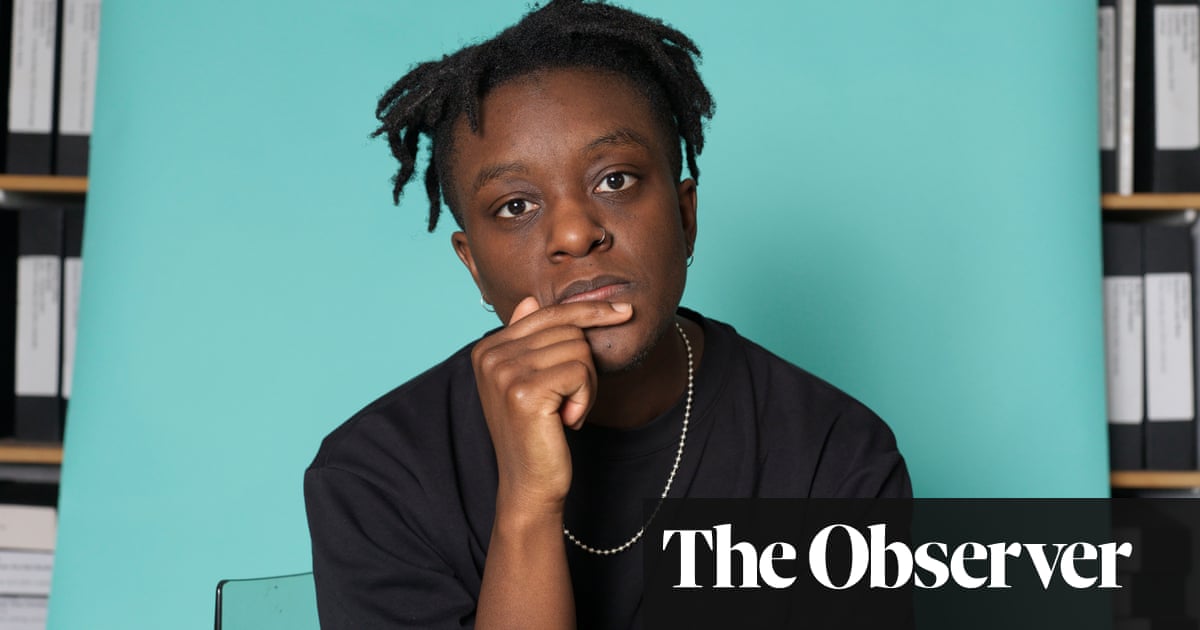Born in 1988, Jay Bernard is a British poet, artist and film programmer born in London. Their multimedia project Surge: Side A, about the 1981 New Cross house fire, won the Ted Hughes award in 2017. Their debut poetry collection, Surge, won the 2020 Sunday Times/University of Warwick Young Writer of the Year award and was shortlisted for the TS Eliot prize and the Costa book award for poetry. Their new project, The Last X Years, uses AI software to assemble news headlines from the last decade with segments of conversations about Brexit they conducted with people across the UK. They live in Paris.
What is the concept behind The Last X Years?
I’ve been really curious about how Cambridge Analytica manipulated the referendum and the elections in Trinidad and Tobago. I wanted to demonstrate that qualitative data was being manipulated, [but] instead of putting the spotlight on the data, I put it on the processes. The piece uses TensorFlow, Google’s open source AI, to make connections between about 2,500 articles and 450 clips from interviews I conducted [about Brexit]. The clips are then played in a six-day loop as a continuous broadcast, and the connections made by TensorFlow are made visible – you can see them all in a kind of mirror world, pulsating and moving. The idea was to make this often invisible process visible. We’re always going to see authoritarianism, tyranny, wars, but do we have the tools that we need to deal with the manipulation of democracy, not only by people, but by computers? If literacy was a problem 100-150 years ago, what’s our problem now? I think it’s technical illiteracy.
Why did you choose to discuss Brexit?
In the aftermath of Brexit, I found myself being the only person who really wanted to talk about it, who didn’t think it was this horrible, miserable thing that we needed to move on from. I felt as much disturbed by people’s desperation to move on from it as I did by the intensity of it when it was happening. It was this strange political moment, [so] I wanted to do a memory project and hear what people think now that nearly 10 years have passed. The whole political landscape has changed. We’ve got Trump in office again, the Russian invasion of Ukraine, we’ve got essentially a genocidal, settler-imperialist thing going on with Israel. I’m not saying that there was ever a moment in history where things were brilliant, but there is something about the manipulation of a population in western Europe [during Brexit] that seems to me as not the catalyst, but an important conjuncture where everything changed.
How did you go about conducting the interviews? Did you ask them all the same questions?
I [usually began] with: who are you? Where are you from? What do you do? What do you remember about 2016? And then the conversation would go from there. At the end, I would ask: what’s the difference between you in 2016 and you now? How do you feel about the idea of democracy? How do you feel about other people? Do you trust people?
Is there a specific conversation that stands out?
There was one conversation where one person told the most incredible story. They grew up in a gang-related family. They lost their parents really young. [They talked] about things like peace, reconciliation and how you deal with conflict. They said the most beautiful things about truth and depth and what relationships mean and honesty. I was blown away. I genuinely think some people saw [Brexit] as a moment of catharsis.
There is a lot of discussion around the ethics of using AI, especially for artists. Where do you stand?
As I was working on the piece, the conversation about [AI] changed. The way it’s changed education, has an ecological impact, and has come at the same time as an authoritarian, right-wing surge and techno feudalism, wasn’t apparent when I started. I started three years before ChatGPT was released. If anything, AI was still a little cool and slightly niche. But when you’re working on a piece with an institution, there is always that question – do you have the scope, the time and the money to change course? Rather than only spitting out a result, I wanted to turn my attention to the process itself, to the fact that it is organising and mediating human relations. If using AI becomes untenable, we as artists [have to consider] what our relationship is to time and history and things emerging that you didn’t anticipate before.
You recently wrote about leaving London due to gentrification and rising rents. Why do you think things have got so bad?
I think we are the byproduct of choices made by generations above us that were unbelievably myopic. The shift towards neoliberalism was unforgivable, and I don’t just mean that because I can’t buy a house. You have Grenfell. You have thousands of people [living] in temporary accommodation. You have councils themselves going bankrupt. Council tenants living with rooms full of black mould. Schools that can’t afford to do basic things – children coming in with Victorian-style poverty. All of these things can be addressed in a very simple way [but] for some mysterious reason, there is a taboo around the idea that rich people might need to pay their fair share.
How do you think the creative scene will suffer the more unaffordable that London becomes?
If I’m completely honest, it will continue to grow and thrive. All that will happen is kids who inherit wealth from their parents will stay in London, and people who don’t will move, that’s it.
What does home mean to you now?
The word home to me signifies different stratas of society. There was once a time where the idea that everyone might have a home [or] access to social housing, was not a crazy idea. Home for me now is this kind of old-school idea. It’s become a luxury. If you look at what goes for half a million pounds in London – you’re talking about houses that were built for the working class.
after newsletter promotion
You live in Paris now. Why did you choose to move there?
I did that thing where I fell in love. I have a partner. Paris is fascinating. I want to be in Europe, but not because I think it’s some kind of paradise. I don’t like places because of their shiny tourism. I like places on a human level.












